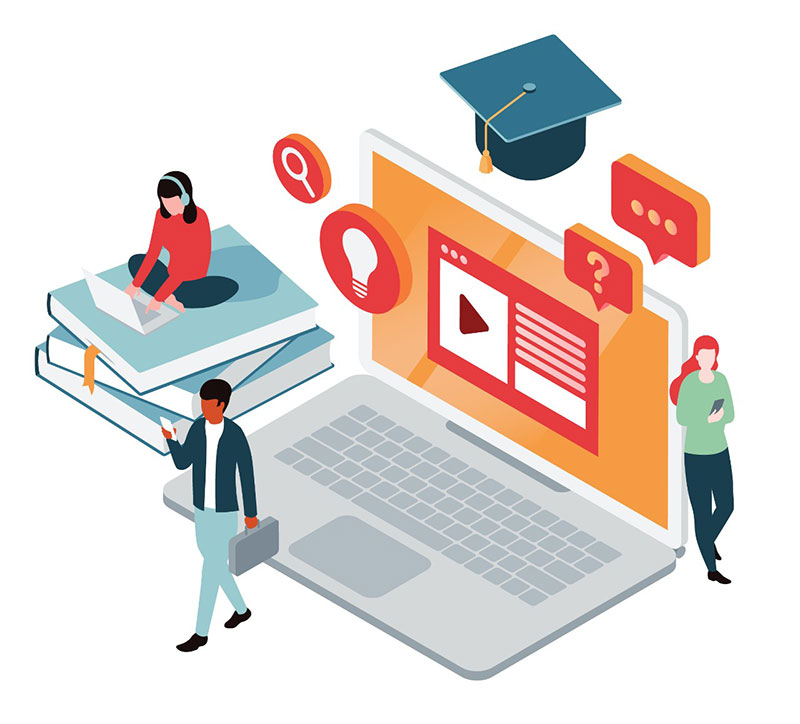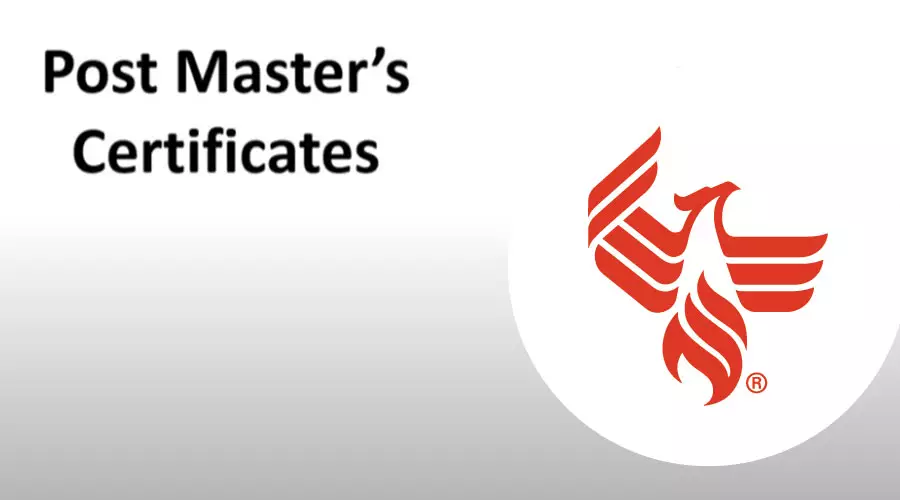College of Doctoral Studies
Degrees and Certificates
Rise as a leader with a doctoral degree
Distinguish yourself in your field while making a positive impact in your community by earning a doctoral degree online from the University of Phoenix.
Our online doctoral programs are built upon our Scholar, Practitioner, Leader ModelSM. It is the driving force within the College of Doctoral Studies that supports the development of doctoral students to recognize and embrace the role of being a leader that enables our doctoral students to empower creative action and influences evidence-based decision-making.
The College of Doctoral Studies strives to develop learners who gain knowledge and internalize their knowledge and their learning in practical terms. Through this process learners develop an understanding of the personal meaning of both and become able to discuss their understanding.
Our doctoral students work closely with faculty who bring 29 years of industry experience to your program and can help you pursue your personal and professional goals.
Explore doctoral programs
Interested in a Doctorate in Nursing Practice?
Learn more about the online doctorate nursing degree.
About doctoral degree program length
The doctoral degree program length can vary by program expectations. Course extensions, research proposals, and research and dissertation can all impact the duration and cost of doctoral studies. That's why our doctoral support team is here to guide you every step of the way. Review your selected program for details.
If you have questions, speak to our dedicated doctoral enrollment representative.
602-544-3737
Support for your doctoral degree
Your success as a doctoral student matters to us. That’s why we provide you with a customized support system that helps you reach your leadership goals with confidence.
Doctoral-dedicated graduation team
Receive doctoral-focused support from an enrollment rep and academic advisor who understands your doctoral journey.
Dissertation support
Rely on dissertation support and assistance from our faculty including the Dissertation Chair, University Research Methodologist, and Panel Validator. They are ready to assist you early in your program and throughout the completion of your dissertation.
College of Doctoral Studies resource repository
Explore the Research Hub, a vital source of information, materials, guides, webinars and workshops relevant to your success as a doctoral student.
College of Doctoral Studies alumni mentor program
The University of Phoenix offers an alumni mentoring program for doctoral students. Speak to an Enrollment Representative or your academic counselor for details.
College of Doctoral Studies Facebook group
Network with other University of Phoenix doctoral students and take the journey together

ACCESS & Learning Outcomes
ACCESS is designed to engage students in more active inquiry within the doctoral community. Its mission is to energize, celebrate, and support entry-level practitioner doctoral students and help develop those students into successful critical thinkers, original writers, innovative researchers, and emerging Scholars-Practitioners-Leaders℠ (SPL).
ACCESS program goals:
- Advancing Community
- Critical thought
- Engagement
- Scholarship
- Success
ACCESS Courses
The ACCESS courses serve as the foundation to our practitioner doctoral program by introducing students to various concepts, models, and strategies. Additionally, the ACCESS courses help to establish program expectations, as well as prepare students to advance their knowledge and skills as a means to facilitate their transformation into successful Scholar-Practitioner-Leaders℠.
In each ACCESS course, students engage in unique collaborative and individual learning experiences designed to:
- Challenge their assumptions
- Advance their speaking, thinking, writing, and research
- Establish their commitment to the scholar-practitioner-leader community
- Cultivate their informed voice through dialogic discourse that transforms their learning
Each of these focal areas represents critical skill domains expected in doctoral-prepared individuals.
The ACCESS courses relate to the doctoral program as a whole through:
- Doctoral identity
- Leadership theory and practice
- Critical and creative thinking
- Conceptualizing and designing research
Courses:
- LDR/711A: Leadership Theory and Practice
- RES/709: Research Conceptualization and Design
- DOC/714S: Symposium I
University Learning Goals
University of Phoenix learning goals focus on six key areas:
- Cultural Competence & Ethics
- Critical Thinking & Problem Solving
- Communication
- Digital Fluency
- Collaboration
- General Education Student Learning Outcomes
ACCESS Learning Outcomes
All doctoral learners in the College of Doctoral Studies should demonstrate behaviors that support the mission of ACCESS and the University Learning Goals. The mission of the ACCESS sequence is to energize, celebrate, and support emerging scholar-practitioner-leaders℠ as successful critical thinkers, original writers, and innovative researchers. Students engage in interdependent doctoral communities through a coherent learning design support by a dedicated cohort of faculty.
University Learning Goals vs ACCESS Learning Outcome
| University Learning Goals | |
|---|---|
|
Cultural Competence & Ethics
|
As a graduate, you will demonstrate the essential practices of cultural competence through proactively seeking to understand the differences in others, examining favored beliefs about yourself and others and taking advantage of opportunities to grow and change when necessary. Value others within diverse workplaces and communities. You will learn how to engage in overt and deliberate planning, practices, strategies, policies, ethical actions and collaborations that support diversity and foster inclusion and belonging.
|
|
Critical Thinking and Problem-Solving
|
As a graduate, you will be able to reason clearly and critically. You will be a problem solver, able to identify and evaluate problems, utilize critical-thinking skills to recommend alternative solutions, select and implement a solution and analyze the consequences and outcomes. Dare to think of new solutions to the biggest challenges. You’ll gain critical-thinking and problem-solving skills you can use in the classroom and on the job. You’ll learn how to evaluate challenging situations, find innovative solutions and analyze the results.
|
|
Communication
|
As a graduate, you will be able to communicate verbally and in writing in a clear, concise and correct manner. You will use proper grammar and punctuation. You will analyze the needs of your audience, adjust the content of messages, choose from a variety of communication tools and deliver your message accordingly. Communicate with clarity, meaning and impact. Knowing how to write clearly and communicate effectively is essential at work and in life. You’ll learn how to be an intelligent communicator who can reach out to your co-workers, potential employers and community members.
|
|
Digital Fluency
|
As a graduate, you will be able to access and ethically use information and data from a variety of sources. You will research and analyze the plausibility and accuracy of the information. You will learn to utilize digital tools to create new information or knowledge and responsibly disseminate it in a digital environment. Access, utilize, and create information In the digital information age, knowing where to access, evaluate, and use information to your advantage is an important skill in work and in life.
|
|
Collaboration
|
As a graduate you will work effectively in groups and teams. You will be a collaborator, able to foster constructive interactions. You will build consensus by acknowledging the perspectives of others. You will function well as both a leader and a follower in working productively to achieve results. Work constructively with others to achieve results. You’ll learn there is strength in numbers, whether you’re working on a team as a student or as a professional. Through active collaboration, you’ll gain valuable experience and insight from the people around you—who will also challenge you to grow as an individual and as a team member.
|
|
|
Watch: Post Master's Certificates

Watch Post Master's Certificates video.